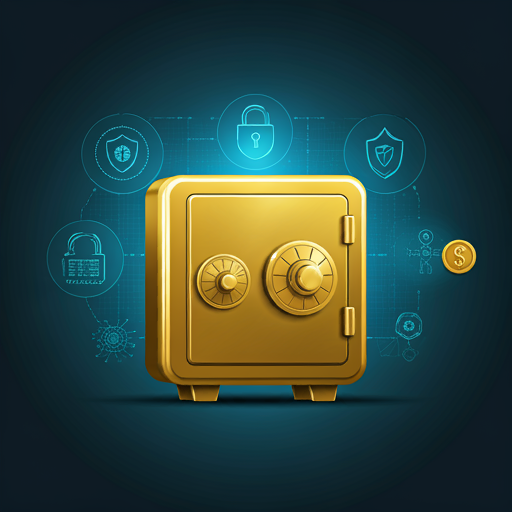Introduction to Cybersecurity in Finance
Importance of Cybersecurity in the Financial Sector
Cybersecurity is crucial in finance due to the sensitive nature of financial data. Protecting this information helps prevent fraud and identity theft. Financial institutions face constant threats from cybercriminals . These attacks can lead to significant financial losses. Awareness is key in this field. Understanding risks is essential for effective protection.
Overview of Cyber Threats in Cryptocurrency
Cryptocurrency faces various cyber threats that can undermine its integrity. These include hacking, phishing, and ransomware attacks. Such incidents can result in substantial financial losses for investors. The decentralized nature of cryptocurrencies makes them attractive targets. Awareness of these threats is vital for safeguarding assets. Knowledge is power in this domain. Understanding the landscape helps in making informed decisions.
Common Cyber Threats Facing Cryptocurrency Users
Phishing Attacks and Social Engineering
Phishing attacks exploit human psychology to gain sensitive entropy. These tactics often involve deceptive emails or websites. Victims may unknowingly provide private keys or passwords. This can lead to significant financial losses. Awareness is crucial in preventing such attacks. Knowledge empowers users to recognize threats. Always verify sources before sharing information.
Malware and Ransomware Risks
Malware and ransomware pose significant risks to cryptocurrency users. These malicious programs can encrypt files and demand payment for access. Victims often face tough decisions under pressure. Effective security measures can mitigate these threats. Regular software updates are essential for protection. Staying informed is crucial in this landscape. Knowledge can prevent costly mistakes.
Best Practices for Securing Cryptocurrency Assets
Using Hardware Wallets for Storage
Using hardware wallets provides enhanced security for cryptocurrency storage. These devices store private keys offline, reducing exposure to online threats. Users can safeguard their assets effectively this way. Regularly updating wallet firmware is essential for security. This practice helps protect against vulnerabilities. Always choose reputable hardware wallet brands. Trust is crucial in this decision.
Implementing Strong Passwords and Two-Factor Authentication
Implementing strong passwords is vital for securing cryptocurrency accounts. Complex passwords significantly reduce the risk of unauthorized access. Users should combine letters, numbers, and symbols. This practice enhances overall security. Additionally, enabling two-factor authentication adds another layer of protection. It requires a second verification step. Always prioritize security in financial transactions. Security is non-negotiable in this space.
Understanding Blockchain Security
How Blockchain Technology Enhances Security
Blockchain technology enhances security through its decentralized structure. This design makes it difficult for malicious actors to alter data. Each transaction is recorded in a secure, immutable ledger. This transparency fosters trust among users. Additionally, cryptographic techniques protect sensitive information. Strong encryption is essential for safeguarding assets. Understanding these mechanisms is crucial for informed decisions. Knowledge is power in this context.
Potential Vulnerabilities in Blockchain Systems
Blockchain systems, while secure, have potential vulnerabilities that users should recognize. Common issues include:
Understanding these risks is crucial for users. Knowledge helps in making informed decisions. Always stay vigilant in this evolving landscape.
Regulatory Frameworks and Compliance
Global Regulations Impacting Cryptocurrency Security
Global regulations significantly impact cryptocurrency security and compliance. Various jurisdictions have established frameworks to govern digital assets. These regulations aim to prevent fraud and protect investors. Compliance with these laws is essential for legitimacy. Non-compliance can lead to severe penalties. Understanding local regulations is crucial for users. Knowledge fosters responsible participation in the market. Always stay informed about regulatory changes.
Best Practices for Compliance in the Crypto Space
Best practices for compliance in the crypto space include maintaining accurate records and conducting regular audits. These measures ensure transparency and accountability. Additionally, implementing robust KYC (Know Your Customer) procedures is essential. This helps verify user identities and mitigate risks. Staying updated on regulatory changes is crucial. Knowledge is key in this environment. Always prioritize compliance to build trust.
Incident Response and Recovery Strategies
Developing an Incident Response Plan
Developing an incident response plan is essential for mitigating risks. This plan outlines procedures for identifying and addressing security breaches. Timely response can minimize damage and restore operations. Regularly testing the plan ensures its effectiveness. Each team member should understand their role. Clear communication is vital during incidents. Preparedness can significantly reduce recovery time.
Steps for Recovery After a Cyber Attack
After a cyber attack, immediate assessment is crucial. Identify the extent of the breach quickly. This helps in formulating an effective response. Next, isolate affected systems to prevent further damage. Communication with stakeholders is essential during this phase. Transparency builds trust and confidence. Finally, implement recovery measures to restore operations.
The Role of Education and Awareness
Training Employees on Cybersecurity Best Practices
Training employees on cybersecurity best practices is essential for organizational security. Educated staff can identify and mitigate potential threats. Regular training sessions reinforce knowledge and awareness. This proactive approach reduces the risk of breaches. Employees should understand phishing and social engineering tactics. Awareness is key to prevention. Continuous education fosters a culture of security.
Raising Awareness Among Cryptocurrency Users
Raising awareness among cryptocurrency users is vital for security. Educating users about potential risks enhances their protection. Key topics include phishing, wallet security, and transaction safety. Users should regularly update their knowledge. Awareness can prevent costly mistakes. Engaging content can facklitate learning. Knowledge empowers users to make informed decisions.
Future Trends in Cybersecurity for Finance
Emerging Technologies and Their Impact on Security
Emerging technologies significantly influence security in finance. Innovations like artificial intelligence enhance threat detection capabilities. These advancements allow for quicker responses to incidents. Blockchain technology also improves transaction security and transparency. Users benefit from increased trust in systems. Staying informed about these trends is essential. Knowledge is crucial for in effect risk management.
Predictions for Cyber Threats in the Cryptocurrency Space
Predictions for cyber threats in the cryptocurrency space indicate an increase in sophisticated attacks. Cybercriminals are likely to exploit vulnerabilities in decentralized finance platforms. Phishing schemes may become more targeted and deceptive. Users must remain vigilant against these evolving tactics. Enhanced security measures will be sssential for protection. Awareness can significantly reduce risks. Staying informed is crucial for all users.

Leave a Reply